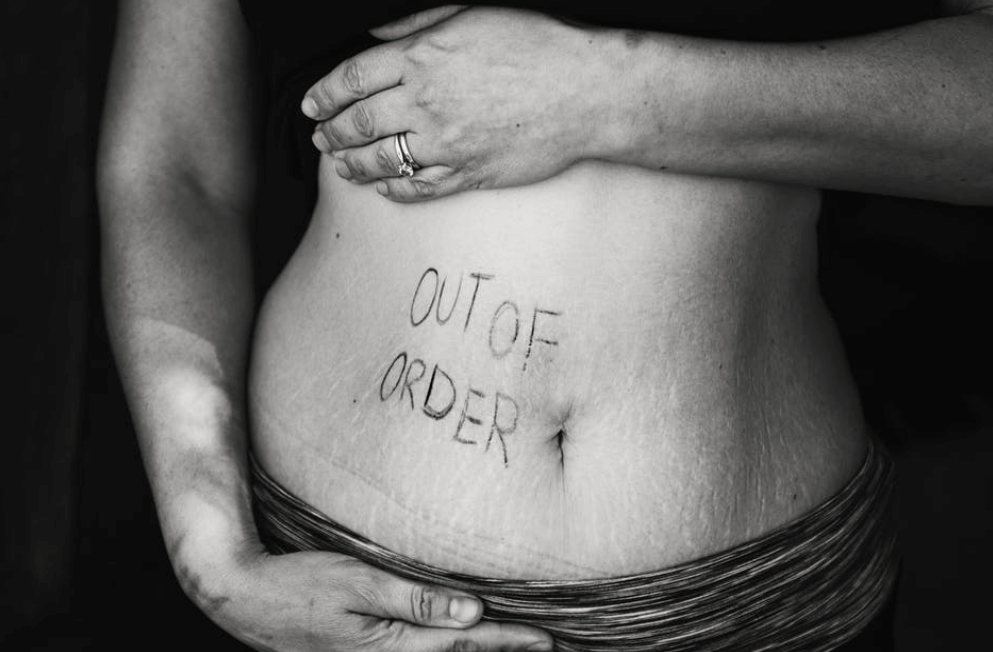I think it is safe to say that, usually, people are not always completely content with their bodies or their appearance. It is normal to have moments of self-doubt, low confidence and negative body issues. However, if you express feelings of insecurity with yourself, maybe people will tell you, “don’t think that way!” or to “stop being so negative!” … but what if you can’t? Mayo Clinic describes body dysmorphic disorder (or body dysmorphia) as a mental disorder in which you constantly think and reflect about your own flaws even if they are not apparent to other people. Some people may research or hear about body dysmorphia and think that it is no big deal and the individual with the illness should just “get over it” – which is usually the case with many other mental illnesses too.

However, I think that by now, we know better and we should raise awareness to these disorders to start conversations and help people get support and the help, realization, and information that they need to live their best life and hopefully help conquer their negative body issues. So, let’s get talking!
Body dysmorphia brings upon intense feelings of shame, embarrassment or anxiety about your body and an obsession with fixing your appearance and constantly seeking reassurance about how you look. This disorder can majorly affect how you live out your life not only by mentally affecting your self-confidence but also physically. Someone with this disorder may think strongly about or proceed with getting cosmetic surgeries to “improve” their appearance. This is not to say that engaging in cosmetic procedures is a negative thing – in terms of both health needs and preferred aesthetics – but, in this case, the procedures do not result in long-term happiness within themselves.

There are factors that can correlate to having body dysmorphia including your genes and hereditary. This disorder is more common in people whose blood-related family members have also had body dysmorphia. Abnormalities in the brain or chemistry of the brain may also contribute to having this disorder. Finally, there are social, cultural and environmental factors that can cause this disorder. There are endless causes that are personal to everyone’s life experiences and childhood. In the world we live in today, social media is a big part of our society and is very easily accessible. Although social media has its benefits, it is also a platform that encourages comparison, envy and distaste in oneself because of the constant feed of information we gain from the world around us. We idealize worlds and lives of other people who, in reality, we actually know nothing about.
It will be interesting: The Social Media Cleanse
Some symptoms of body dysmorphia include:
- intense preoccupation with “minor” flaws that are not apparent to others
- genuinely believing that you are deformed or ugly
- thinking strongly that others are constantly thinking negatively of you
- continually fixing/hiding your “flaws”
- using makeup/clothing or other factors to change yourself and hide your “imperfections”
- continually comparing yourself with others
- constantly looking for reassurance from others
- perfectionist qualities
- obsession with negative body issues
- engaging in or strong interest in cosmetic procedures without resulting in happiness within oneself
- avoidance of social events or gatherings because of shame or embarrassment of your appearance
- major stress, anxiety and/or depression because of your appearance that greatly affects the functioning of your daily life

Now, to be clear, it is not a bad thing to like using makeup or to be interested in fashion or cosmetic surgeries. I, myself, love using makeup and experimenting with fashion! The difference is that someone with body dysmorphic disorder would be using these mediums to change or improve themselves because they are greatly unhappy with their appearance and, even after using these factors for self-betterment, they are never satisfied with the end result.
Body dysmorphic disorder can cause serious complications and consequences like depression, anxiety, mood disorders, physical/self-harm, obsessive-compulsive disorder, eating disorders, substance abuse and suicidal thoughts or actions.

Body dysmorphia can be found in individuals of any sex, gender, age, race, culture, religion, etc. It is a real issue and not just body issues that can be “fixed” easily. To better your state of mind, it is going to be a journey and involve both successes and mistakes (which is okay!). If you think that you have body dysmorphia, do not shrug it away! Talk to your doctor, a crisis talk/text line, or someone you trust and can confide in about your symptoms and your feelings, even if you think your case is mild – it is still important to address your feelings. If you think someone you know has body dysmorphia, you can try talking to them about it or give them resources to contact so that they can speak to a professional, like crisis chat or text lines. This issue should not be in the dark any longer and we, as a society, should engage in conversation about it so that we may grow to be a community that can support and listen to each other.
It will be interesting: 5 Ways To Boost Your Confidence
All information provided by Mayo Clinic regarding Body dysmorphic disorder.



